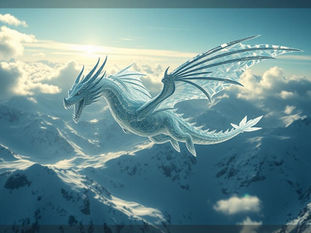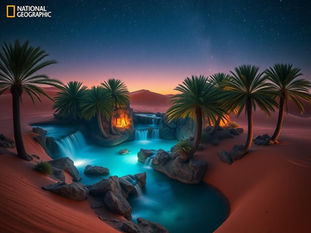
Beginner's Steps to Creating Amazing Art with Midjourney V6
Apr 30
4 min read
0
0
0

Want to turn your simple text ideas into stunning images? Midjourney is a powerful tool that uses AI to create art from your descriptions. If you're new to AI art or Midjourney, this guide will walk you through the basic steps to get started and even explore some cool advanced features. Get ready to make your imagination visible!
Signing Up for Midjourney
Midjourney runs through Discord. So, your first step is to have a Discord account. If you already have one, great! If not, you'll need to create one.
[P][LI]Go to Midjourney.com.[/LI]
[LI]Click the "Sign In" button.[/LI]
[LI]You'll be prompted to log into Discord. If you don't have an account, click "Register" and follow the steps to create one.[/LI]
[LI]Once your Discord account is ready, log in and authorize Midjourney to connect.[/LI][/UL]
Unlike in the past, Midjourney mostly uses a web interface now, which many people find easier than using the Discord app directly for creating images.
Getting Your Midjourney Subscription
Midjourney no longer offers free trials. To start creating art, you need to get a subscription plan.
[LI]Choose a plan that fits your needs and budget. Plans vary in how many images you can generate per month.[/LI][/UL]
Once you have a subscription, you can start creating your own images.
Making Your First Image
Creating an image is straightforward. Midjourney translates your text description, called a prompt, into visual art.
[LI]Hit Enter.[/LI][/UL]
Midjourney will show you the progress as it generates your image. Soon, you will see four different images based on your prompt.
Working with Your Results: Upscale and Rerun
After Midjourney generates your first set of four images, you have options to improve or change them.
Upscaling Images
The initial images are smaller drafts. To get a high-quality version of one you like, you need to upscale it.
[LI]Creative Upscale: Makes the image larger and adds more new details, potentially changing the look more noticeable.[/LI][/UL]
Rerunning Your Prompt
If you don't like any of the initial four images, you don't have to type the prompt again. You can just rerun it.
[LI]Clicking this button will generate four *new* images using search terms from the same prompt. They will be different from the first set.[/LI][/UL]
Understanding Seeds
Every image Midjourney creates has a unique code called a "seed." Even if you use the exact same prompt, Midjourney uses a different seed each time you run it (unless specified), which is why you get different results every time.
Managing many prompts, reruns, and variations can become a lot. Explore tools that streamline this process. The Midjourney Automation Suite from TitanXT offers features to help manage your generations more efficiently.
Making Variations of One Image
Instead of rerunning the whole prompt, you can create variations based on specific image you like from your set of four.
[LI]Very Strong: Creates four new images that are more significantly different from the selected image.[/LI][/UL]
This feature is great for exploring different takes on a composition or style you already like.
Advanced Midjourney Settings
Midjourney lets you control more than just the subject of your image. You can add parameters to refine the artistic outcome.
Changing Aspect Ratios
By default, Midjourney creates square images.
On the web interface, you can use a slider when creating a prompt or editing an existing one to set popular aspect ratios like 9:16 (tall) or 16:9 (wide).
Alternatively, you can add the `--ar` parameter to the end of your prompt. For example, `--ar 16:9` for a landscape image or `--ar 4:5` for a portrait image often used on Instagram.
Example: "A happy monkey playing in the forest --ar 16:9"
Using Commas for Detailed Prompts
For more control and detail, use commas to separate different ideas or elements in your prompt. This helps Midjourney understand distinct concepts you want included.
Example: "A monkey in a Sci-Fi city, wearing cyberpunk clothes, a train is passing by, daytime, beautiful sky --ar 10:17"
Breaking down your prompt like this helps guide the AI to include specific elements.
Adding Chaos
The `--chaos` parameter controls how varied the results are within the single set of four images generated from one prompt.
Use `--chaos` plus a number, usually between 0 and 100.
[LI]`--chaos 100`: The four images can be drastically different from each other.[/LI][/UL]
Example: "A monkey in a forest, watercolor style --chaos 50"
High chaos is good for exploration when you're not sure exactly what you want and want many diverse options.
Trying Different Styles
You can tell Midjourney to generate images in specific artistic styles.
Add a description of the style after a comma in your prompt.
Examples: "A happy monkey, in the style of Van Gogh", "A robot explorer, anime style", "A fantasy landscape, digital painting"
Experimenting with different styles can drastically change the look and feel of your output.
Tips for Better Prompts
Getting good results in Midjourney often comes down to effective prompting.
[LI]Experiment: Try different wordings, add parameters, use commas. Don't be afraid to rerun or vary images.[/LI][/UL]
Remember, creating AI art is an iterative process. Keep trying different prompts and settings until you achieve the look you want.
For users looking to scale their Midjourney efforts or manage extensive prompt libraries, automation becomes key. The TitanXT Midjourney Automation Suite is designed to help you go beyond manual generation, making your workflow smoother and more powerful.
Start Creating Your Own Art
You now have the basic steps and some advanced techniques to start creating art with Midjourney V6. From signing up and generating your first image to upscaling, varying, and using parameters like aspect ratio, commas, and chaos, you have a solid foundation.
Dive in, experiment, and see what amazing images you can create from your ideas. Don't forget to keep exploring new features and techniques as you go.






